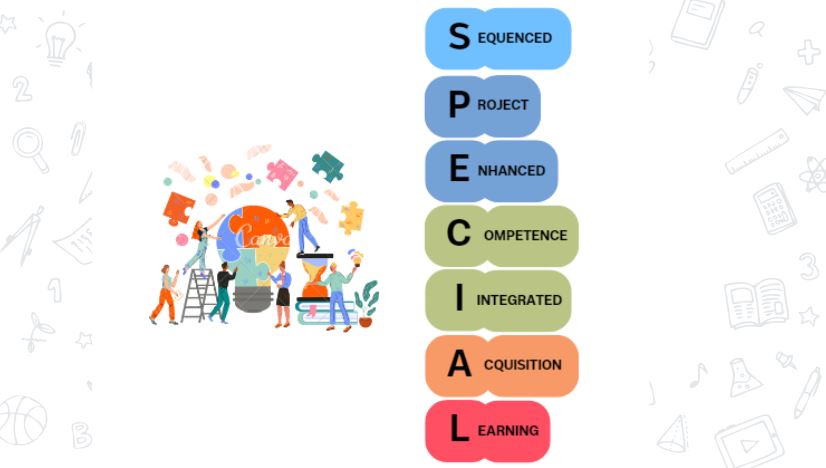AESLA 2024: Vicky Gil presents the teacher training model SPECIAL

Our team member Vicky Gil participated in the 41º Congreso Internacional de la Asociación Española de Lingüística Aplicada (AESLA), which was celebrated in the Universitat Politècnica de València (Spain) last 17th-19th April. In her talk, Dr. Gil presented her teacher-training model SPECIAL, which was designed to be used in English as a Foreign Language and Content and Language Integrated Learning contexts, and which stems from different language teaching theories such as Project-Based Learning and Second Language Learning and Teaching. By presenting her model, she also addressed the limitations of preexisting teacher-training models in these contexts, and highlighted the benefits that the SPECIAL model offers to teachers in training.
The abstract of her talk can be consulted as follows:
SPECIAL: A Teacher Training Model for EFL and CLIL Contexts
In response to the evolving demands of contemporary education, this study introduces SPECIAL (Sequenced, Project Enhanced, Competence Integrated Acquisition and Learning), a teacher training model designed to foster effective learning in English as a Foreign Language (EFL) and Content and Language Integrated Learning (CLIL) across Pre-primary, Primary, and Secondary Education settings.
The study pursues three key objectives. Firstly, it seeks to elucidate how the fusion of Second Language Learning and Teaching, General Learning Theories, and Project-Based Learning contributes to shaping a teacher training model for EFL and CLIL classrooms. Secondly, it aims to delineate the fundamental components and stages integral to this model. Thirdly, the study offers the presentation and teaching methods used to introduce the SPECIAL model during teacher training courses.
Rooted in the researcher’s bilingual learning journey and extensive experience as an English teacher and trainer in Spain, this model seeks to address the shortcomings of existing EFL and CLIL teacher training programs. The methodology draws on the practical implementation and iterative refinement of the SPECIAL model over the past six years.
The study significantly advances teacher training practices by presenting a tested and adaptable model for EFL and CLIL contexts. By fostering continuous professional development and reflective practices among educators, the study strives to catalyze positive transformations in English language learning outcomes. Importantly, the SPECIAL model is positioned for global applicability, addressing the needs of both pre-service and in-service educators.
